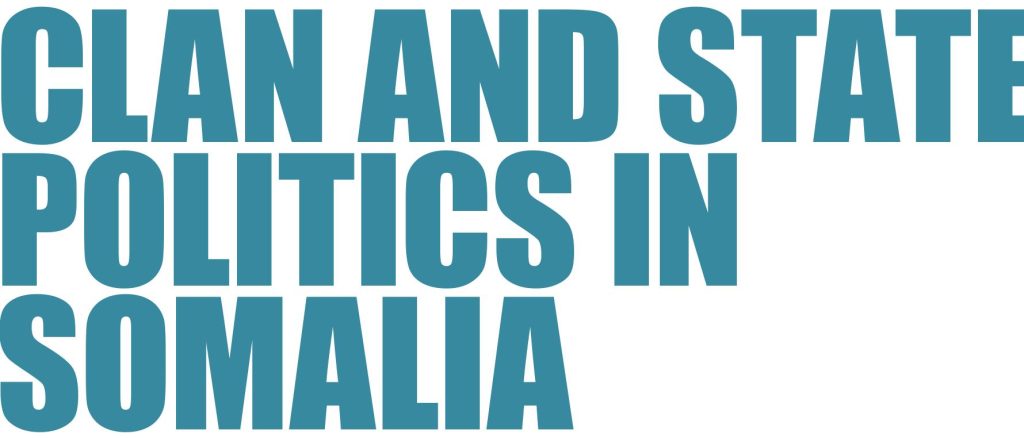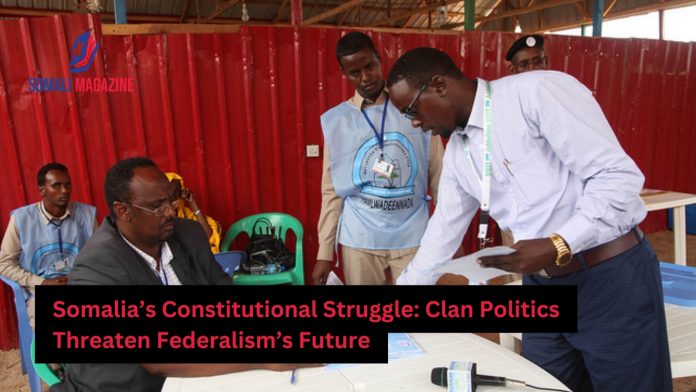Facebook Twitter Instagram Somali Magazine - People's Magazine
Somalia’s ambitious bid to finalize its long-overdue federal constitution is being undermined by entrenched clan politics, according to a new report by the Somali Public Agenda, a think tank specializing in governance and public policy. The report, released on April 4, 2025, highlights how pervasive clan-based rivalries have slowed progress, raising concerns about the country’s ability to strengthen its federal system and hold credible elections.
The draft constitution, first adopted provisionally in 2012, remains incomplete after more than a decade of debates and delays. The report attributes much of the stagnation to deeply rooted clan divisions, which have hampered efforts to resolve critical issues such as resource sharing, power distribution, and the status of Mogadishu as the national capital. These unresolved matters are seen as fundamental to Somalia’s transition to a stable and functioning federal system.
The report outlines how clan influence dominates Somalia’s political landscape, particularly within federal and state institutions. Clan elders and political elites have exploited the system to secure disproportionate representation and privileges for their communities, often at the expense of national unity and cohesion. As a result, negotiations over key constitutional provisions have frequently stalled, with stakeholders prioritizing their clan’s interests over broader national goals.
One of the most contentious issues remains the distribution of natural resources. The report notes that disputes over revenue-sharing agreements between federal and state governments have fueled mistrust and hindered consensus-building. Resource-rich states such as Puntland and Jubaland have resisted proposals that they perceive as reducing their autonomy, while less endowed regions have pushed for equitable redistribution to address historical disparities.

Another major sticking point is Mogadishu’s status as the capital city. While the federal government advocates for Mogadishu to be granted special status, reflecting its role as the nation’s political and economic hub, regional leaders argue that such a move would centralize power and undermine federalism. The report warns that without a compromise on this issue, Somalia risks further political fragmentation.
The report also highlights how Somalia’s 4.5 clan power-sharing model—a system that allocates parliamentary seats based on clan representation—has exacerbated tensions. Initially introduced as a temporary measure to ensure inclusivity, the model has become a source of division, with marginalized groups and minority clans calling for its replacement with a more equitable system. “The 4.5 model perpetuates clan identity as the primary basis for political engagement, undermining efforts to promote national unity,” the report states.
Somali political analysts have called for renewed efforts to depoliticize the constitutional review process and address the underlying causes of clan-based rivalries. Abdulqadir Warsame, a constitutional expert, argues that Somalia’s leaders must prioritize the national interest over narrow clan agendas. “Finalizing the constitution is essential for Somalia’s stability and development. It requires political will, inclusivity, and a commitment to compromise,” Warsame said.
The international community, which has provided financial and technical support for Somalia’s constitutional process, has urged Somali leaders to accelerate progress. Organizations such as the United Nations and the African Union have emphasized the importance of finalizing the constitution ahead of the next national elections, warning that further delays could undermine public confidence in Somalia’s political institutions.
In response to the report, Somali President Hassan Sheikh Mohamud reiterated his administration’s commitment to advancing the constitutional process. “Our government recognizes the challenges posed by clan politics, but we remain determined to finalize the constitution in a way that reflects the aspirations of all Somalis,” Mohamud said during a recent address in Mogadishu.
As Somalia navigates this critical juncture, the report serves as a stark reminder of the obstacles that must be overcome to achieve lasting peace and stability. Resolving the constitutional deadlock will require bold leadership, inclusive dialogue, and a shared vision for the nation’s future.

